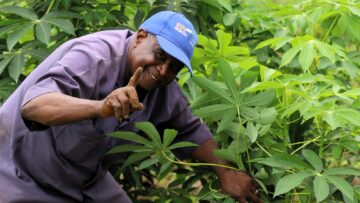
“Life would have been difficult as a retiree” – Ubullaun
Sir Kanji Ubullaun, a 70-year-old retired civil servant in Benue state, had just returned from the plot of land where...
Read Post
The five-year Building an Economically Sustainable and Integrated Cassava Seed System, Phase 2 (BASICS-II) was awarded by the Bill & Melinda Gates Foundation to the International Institute of Tropical Agriculture (IITA) and its partners on 14 May 2020. BASICS-II will consolidate prior investments in BASICS-I in Nigeria, led by the CGIAR Research Program on Roots, Tubers and Bananas (CRP-RTB); and its ongoing sister project in Tanzania called Building an Economically Sustainable Seed System for Cassava in Tanzania (BEST). The Mennonite Economic Development Agency (MEDA) is the current primary grantee for BEST. BASICS-II is led by IITA which has offices in both Nigeria and Tanzania.
The project aims to transform the cassava seed sector by promoting the dissemination of improved varieties thereby creating a community of seed entrepreneurs across the cassava value chain. The project will focus on Nigeria and Tanzania with spin off to other African countries. The project will nurture the development of sustainable Early Generation Seed systems through public-private partnerships, and link these seed systems to networks of entrepreneurs and processors that are ready to multiply, distribute, and sell clean planting materials (Seeds) of new and improved varieties emanating from linked breeding systems.
The goal of BASICS-II is to provide farmers with access to affordable, quality-assured seeds of the cassava varieties in demand by local food and processor markets through the establishment of a commercially viable seed value chain operating across breeder, foundation, and commercial seed levels. This value chain will enable more efficient dissemination and adoption of new varieties to improve productivity, raise incomes of cassava growers and seed entrepreneurs, enhance gender equity, and contribute to inclusive agricultural transformation in Nigeria and Tanzania.”
BASICS-II will build on the strategy started in BASICS-I that links root producers, processors and consumers with EGS producers (breeder seeds and foundation seeds) and commercial seed producers providing feedback from consumers, processors and farmer to continuously improve product profiles used by breeders. Seed regulatory agencies provide oversight along the seed production value chain with emphasis on EGS production.
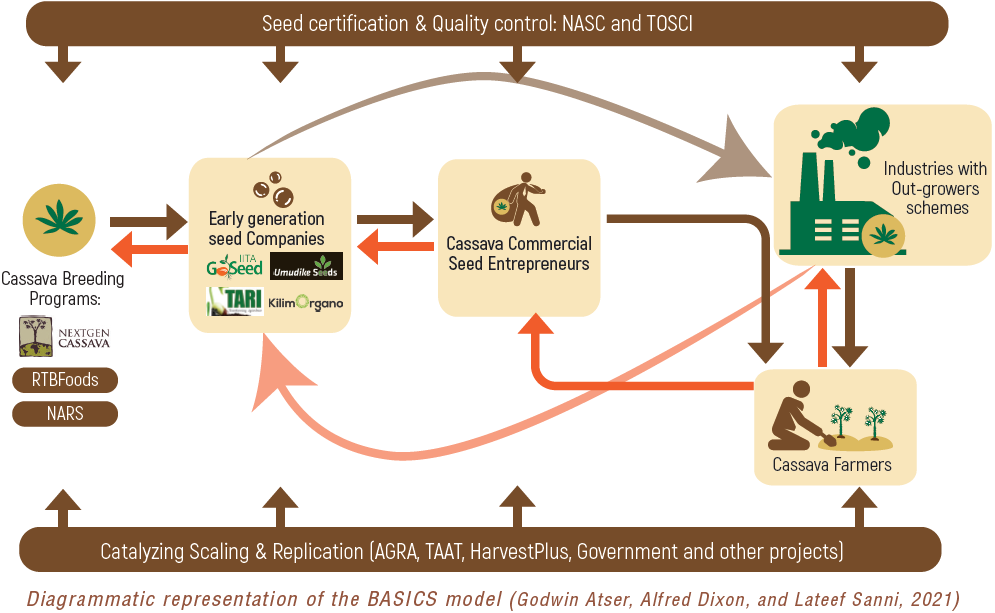
Partners: IITA (Lead), TARI Partners: IITA GoSeed (Lead), MEDA, TARI Partners: CRS (Lead), NRCRI, MEDA, TOSCI Partners: Sahel Consulting (Lead), MEDA Partners: IITA (Lead), NASC, TOSCI Partners: IITA
Primary Outcome: New cultivars emanating from cassava breeding programs are integrated into seed systems in a manner that facilitates their marketing, production, sales, and uptake. The seed systems serve to inform cassava breeders of seed buyers’ preferences to advise the shaping of target product profiles.
Primary Outcome: Seed enterprises are established in Nigeria and Tanzania that produce early generation seeds (EGS) (equivalents of breeder and foundation seeds) in a reliable and economically sustainable manner for sale to independent, private seed entrepreneurs who sell seeds to farmers.
Primary Outcome: Decentralized, commercially viable seed enterprises [cassava seed entrepreneurs (CSEs)] in Nigeria and Tanzania demonstrate sustained production and sales, and increase in average size and aggregation into associations to facilitate marketing, quality control, and other services to validate a commercial seed model that can be replicated.
Primary Outcome: At least four processor-associated seed systems are successfully developed, demonstrating that processors can produce seeds for their farms and outgrowers in an economically sustainable and replicable manner.
Primary Outcome: Functional policies and regulatory capacities are established to promote quality in cassava seed systems and facilitate disease management without stifling the development of seed systems with unsustainable costs.
Primary Outcome: The BASICS-I and BEST’s seed system model is scaled in Nigeria and Tanzania and replicated in at least two more countries through the engagement of additional development partners, including AGRA and the AfDB’s Technologies for Africa Agricultural Transformation (TAAT) program taking advantage of TAAT’s strong links with country programs on cassava in Africa.

Sir Kanji Ubullaun, a 70-year-old retired civil servant in Benue state, had just returned from the plot of land where...
Read Post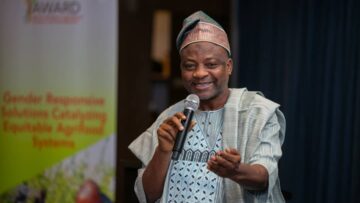
The Project Manager of the Building an Economically Sustainable and Integrated Cassava Seed System, Phase 2 (BASICS-II)...
Read Post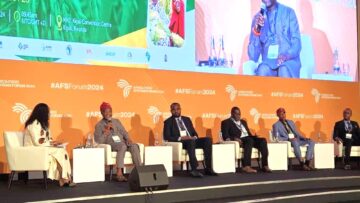
The Building an Economically Sustainable Integrated Cassava Seed System, Phase 2 (BASICS-II) of the International Institution...
Read Post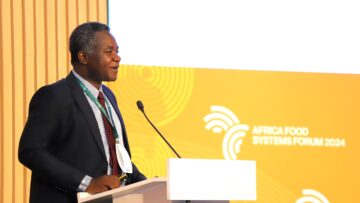
The Country Director of the Sasakawa Africa Association, Nigeria, Dr Godwin Atser, has called for a concerted effort...
Read Post